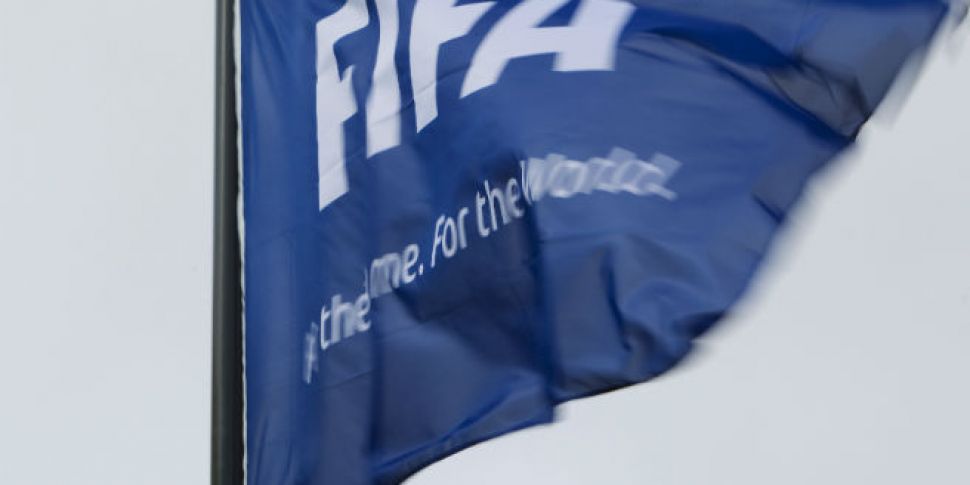Seven FIFA officials have been arrested in Switzerland over allegations they were part of a racket involving bribes adding up to more than $150m.
Swiss authorities detained the officials - two FIFA vice presidents and five other current or former senior FIFA officials - in an early-morning operation in Zurich on suspicion of receiving and paying bribes.
A total of 14 defendants are accused of racketeering, fraud and money-laundering conspiracies over 24 years by US authorities.
The hard-hitting allegations raise questions over FIFA's presidential election on Friday, in which current president Sepp Blatter is expected to be re-elected, and the 2018 and 2022 World Cups in Russia and Qatar.
UEFA, European football governing body, has called for the vote to be postponed, while a separate Swiss investigation has been launched into possible criminal mismanagement of the bidding process for the 2018 and 2022 tournaments.
Mr Blatter has said he "welcomes" the investigations, and announced that 11 of the 14 suspects have been suspended from football-related activities.
He said: "Let me be clear: such misconduct has no place in football and we will ensure that those who engage in it are put out of the game."
In the statement he went on to add: "We will continue to work with the relevant authorities and we will work vigorously within FIFA in order to root out any misconduct, to regain your trust and ensure that football worldwide is free from wrongdoing."
US Attorney General Loretta Lynch has described the alleged corruption as "rampant, systemic, and deep-rooted".
She said: "It spans at least two generations of soccer officials who, as alleged, have abused their positions of trust to acquire millions of dollars in bribes and kickbacks."
Investigators say the conspiracy extends to the decision to award South Africa the 2010 World Cup and FIFA's presidential election in 2011.
A spokesman for the South African Football Association said the allegations were "baseless and untested".
The officials arrested are: current FIFA vice presidents Jeffrey Webb and Eugenio Figueredo, FIFA executive member-elect Eduardo Li, FIFA development officer Julio Rocha, former general secretary of CIFA (Cayman Islands Football Association) Costas Takkas, FIFA disciplinary committee member Rafael Esquivel and FIFA Olympic football organising committee member José Maria Marin.
Six of the seven oppose extradition, meaning US authorities now have 40 days to submit formal extradition requests. They face up to 20 years in prison if convicted.
Jeffrey Webb and Costas Takkas are British citizens, according to the Swiss authorities.
Former FIFA executives on the indictment are Jack Warner, former FIFA Vice President, and Nicolas Leoz, former FIFA executive committee member and South American Football Confederation president.
The US Department of Justice alleges that Mr Warner solicited $10m in bribes from the South African government to host the 2010 World Cup, but speaking earlier, Mr Warner said he is "innocent of any charges".
The five other names on the indictment are sports marketing executives and a media executive.
The defendants who have been banned from football-related activities are: Jeffrey Webb, Eduardo Li, Julio Rocha, Costas Takkas, Jack Warner, Eugenio Figueredo, Rafael Esquivel, José Maria Marin, Nicolás Leoz, Chuck Blazer and Daryll Warner.
In addition, former CONCACAF General Secretary and FIFA executive committee member Charles Blazer, Daryll Warner and Daryan Warner, the sons of Jack Warner, and José Hawilla, an executive at a Brazilian sports firm, have already pleaded guilty to US charges.
The arrests of the FIFA officials took place after more than a dozen plain-clothed Swiss police officers arrived unannounced at the Baur au Lac hotel in Zurich on Wednesday morning.
US authorities have also raided the headquarters of CONCACAF in Miami, Florida as part of the investigation.
Meanwhile, it has also announced that ten FIFA executive committee members will be questioned over the allegations surrounding the 2018 and 2022 World Cups, and a number of Swiss bank accounts will be frozen and examined.
Football Association chairman Greg Dyke said the crisis is "very serious for FIFA and its current leadership" and said there were doubts over whether the vote for the body's president will take place on Friday.
A FIFA spokesman said earlier on Wednesday that the congress and presidential election will go ahead as planned, as will the 2018 and 2022 World Cups.









